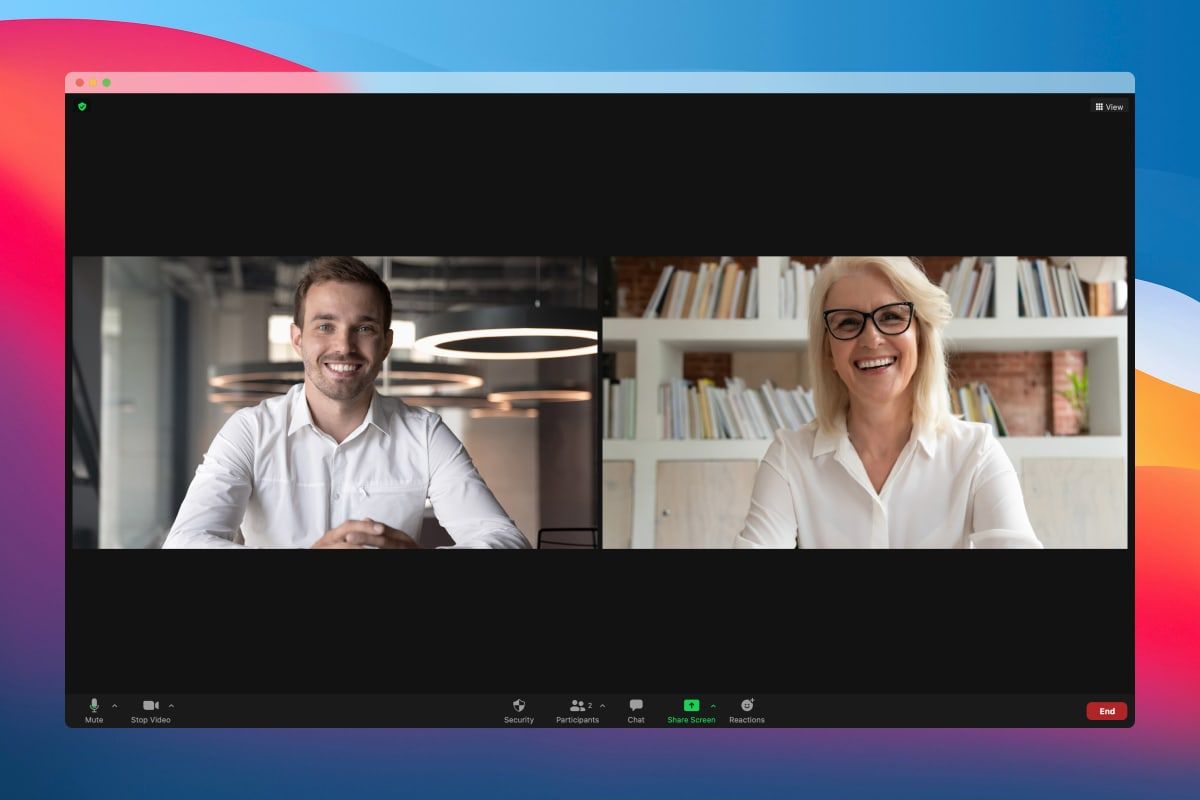If you have a gap in your employment history, know that you're not alone. The majority of people have been unemployed at some point in their working life.
There are three places where you'll need to explain a gap during your job search: your resume, cover letter, and during the job interview. While there are ways to minimize the impact of employment gaps, you still need to be honest and forthcoming when explaining them.
This article outlines everything you need to know about explaining gaps in your employment history, including where to explain employment gaps and a list of good reasons.

What are employment gaps?
Employment gaps are periods in your professional career when you didn't have formal employment. An employment gap can range from a few months to several years and occur voluntarily or involuntarily.

How to explain employment gaps on your resume
Recruiters and hiring managers form their first impression of you from your resume and cover letter. Employment gaps on a resume can be a red flag if you don't explain the reason for your gap and the experience you gained during that time. Addressing employment gaps in your resume is essential to ensuring the gaps don't harm your chances of landing an interview.
Knowing how to include employment gaps is a positive as it can help you create a great experience section in your resume.
Follow these steps to explain gaps in your employment history on your resume:

1. Invest your unemployed time preparing for your next job
The best thing you can do to explain employment gaps on your resume is to invest the time you are unemployed preparing for your return to work.
You can do this by using the time for professional development through online courses, continuing education courses, going to events, volunteering, freelancing, or contracting.
Staying active during unemployment gives you positive experiences to fill employment gaps when writing your resume.

2. Determine whether you need to include an employment gap
You don't need to include every job on your resume. If your employment gap occurred early in your career, it might not be necessary to include the job you had before your gap in employment.
As a rule of thumb, you only need to include your most recent and relevant employment experiences in the employment section of your resume.

3. Remove small gaps by committing the month
If the gaps in your employment history are small, you can omit the month from the date of each role. List the years each position employed you.
This method only works if the gaps in your employment were less than a year and you worked in each position for more than a year.
For example, if you were employed as a marketing manager from August 2019 through January 2021 and didn't begin your next job until March 2021, you can disguise this employment gap by listing the dates of your first job as 2019 - 2021 and the dates fo your next job as 2021 - Present.
Keep in mind this can help you get past the initial screening, but the interviewer will still ask you about specific dates during the interview, so prepare an answer ahead of time.

4. Use a functional resume format to make the gap less obvious
A functional resume format focuses on your skills and achievements over experience. Functional resumes make employment gaps less evident than chronological resumes.
In a functional resume, you include sections such as a career summary statement and critical accomplishments to make the positive experiences the focus of your resume.
Then, you can include your employment history toward the end of the resume. You can even combine a functional resume format and the commission of months to minimize the risk of short employment gaps.
Be sure to check out our guides on how to write a remote job resume and cover letter. Even if you're not looking for a remote job, our resume guide includes recruiter-approved resume templates in the functional resume format, chronological resume format, and combination resume format.

5. List longer employment gaps as a job with a reason
If you have an employment gap that is longer than a year, you will need to address it in your resume, as it will be obvious even if you only list years and use a functional resume format.
The best way to overcome this is to include what you were doing in your experience section as if the gap was a job.
Keep the entry brief, so it doesn't distract from your more relevant experience. For example, if you spent four years as a stay-at-home parent until your child was in preschool, you could include the following on your resume:
Full-time parent, 2019 - 2021
Took time away from my career to raise a child

6. Include the relevant experience gained during the gap
Try to relate the knowledge you gained during your employment gap to the position.
For example, if you took three years off to care for your child and you're applying for a remote customer success job, the employment gap entry in your resume experience section may look like this:
Full-time parent, 2019 - 2021
* I took time away from my career to raise a child
* Managed household with daily tasks such as cleaning, cooking, and laundry
* Ensured my child was developing and happy

How to explain employment gaps in your cover letter
Your cover letter is a great place to explain significant gaps in employment as it lets you go into detail about how you used the time to prepare for your return to the workforce. If you need help writing a cover letter, consider using our AI cover letter generator.
Explaining resume gaps in your cover letter also shows hiring managers and recruiters that you're honest and trustworthy, which can help you stand out from other candidates.
For example, you might include a short section in your cover letter that reads as follows:
During the gap in my employment from 2017 to 2019, I traveled through Africa. It was a once-in-a-lifetime experinece that helped me understand more about two parts of the world that are growing rapidly. I really think that they'll be important markets in the future and I think what I've learnde will fit extremely well with your marketing manager position from EMEA.
However, you should be careful dedicating too much to unemployment gaps in your cover letter, as you'll want to use most of your cover letter to emphasize your passion for the role and company.
It's best to use cover letters to dive deeper into your relevant skills, work experience, and expertise.
Think about it this way: Your resume focuses on your qualifications and achievements, and your cover letter expands on those achievements, showcases your personality, and explains why your experience makes you a good fit for the company and role.

Example cover letter explaining a gap in employment
Dear [Hiring Manager Name],
My name is Jian Yang, and I'm applying for a software engineering position at Hooli. I'm excited about Hooli's mission to change the world, and I'm passionate about your tech stack that includes Python, Java, React, and Scala. All languages that I have used in the past.
I recently took a year-long hiatus to help my friend Erlich Bachman launch a startup accelerator called Aviato. You might be familiar with one of the companies Aviato has backed, Pied Piper. I learned quite a bit about business strategy and going from zero to one while working on a very stringent budget. I know that I can turn those skills into new products for Hooli.
I'm ready to jump back into the game and restart my career as a software engineer. I'm confident that I'm the perfect person to lead your middle-out engineering team. Let's meet to discuss further
Thanks for your time,
Jian Yang

How to explain employment gaps in a job interview
There are a few guidelines you should follow when addressing gaps in your employment history during an interview:

1. Prepare to talk about it
Having a gap on your resume won't prevent you from moving through the interview process, but potential employers will expect an explanation.
Invest time before the interview to develop an answer that shows why you're a valuable employee.

2. Be honest
Honesty is the best policy, but don't go into unnecessary detail.
Your answer could follow this template: "I [reason you were not employed]. During that time, I [what you did during the gap]. Returning to work over that period was my primary focus, and I'm ready for a new job."
Below are examples you can use based on your situation:
If you left the workforce to be a caretaker
"We had a new family member, and I spent time as the primary caretaker. During that time, my focus was on caring for my child, but I always knew I didn't want to be away from work for an extended period. Now that she is in preschool, I'm ready to return to work."
Your previous employer laid you off
"My former employer restructured and eliminated my position. It was a difficult time for me. I love working. But I left with confidence that the job market had recovered and the new skills I had developed would help me land a new role. I'm looking forward to applying what I learned in my next job."
Your previous employer fired you
"My prior employer and I had different definitions for success. Reflecting on it, I could have done a better job clarifying success. I learned a lot from the process, and I'm excited to get some more work experience."
If you took time off for personal reasons
"I was lucky enough to save some money in my 20s, so I could take a career break when I turned 30. I spent the last year traveling and doing volunteer work at nonprofits that matter to me. I'm incredibly excited about your mission, and I hope that I can work with you for a long time."
If you were training for a new career
"I took time off to get my MBA. I realized that while I was a good software engineer, I didn't have the skills of my peers, and I preferred business problems. I believe that this unique set of skills positions me perfectly for this remote product manager job."
Volunteering
"I took a year off in 2017 to volunteer at a nonprofit. I was responsible for every aspect of the software development process, including recruitment and project management. I managed over 100 volunteers and read books like High Output Management, which solidified my project management skills."
Personal medical leave
"I had to take two years off for a medical issue. Luckily, the treatment was successful, and I'm back to full health. While I was recovering, I spent a lot of time reading books like Good to Great and 7 Powers, which have given me a fresh perspective on work."
Relocation
"My partner recently got a promotion, which required us to relocate to Singapore. Since then, I've been looking for the right company to join. While I'm new to Singapore, I'm not new to sales, and I know that my skills in sales development could help you."

3. Fill the gap
While you don't need to detail what caused your resume gap, outline how you spent the time, if you've been sitting around for months doing nothing, it could be a red flag for the hiring manager.
Mention things you read to keep up with the industry, how you stayed in touch with colleagues or online courses you've done to prepare for your re-entry. Also, bring up any freelance, volunteer, or community work you did, events you attended, or anything else that could help you stand out from other job seekers.
The aim is to convey you've been engaged with your career while unemployed.

4. Answer briefly and be prepared for other interview questions
People take time off for many reasons. Some of these reasons are personal, and you may not want to provide them.
Once you've addressed the gap in your work history, explain what you did during your time off, then steer the conversation back to your ability to do the job and your passion for the company and its mission.
You can do this by asking the hiring manager a question after answering. Be sure to check out our guide on the best questions to ask during an interview.
If the interviewer continues to ask about your employment gap, you can say: "I'd prefer not to go into more detail. I'm happy to talk about my work experience."
From there, you can use the STAR method to highlight a situation from your work history that makes you qualified for the job.
You can even end the interview by saying: "I'm not comfortable with where our conversation is heading, so I'd like to end the interview. Thank you for your time."

List of good reasons for employment gaps
When explaining an employment gap on your resume or in an interview, you want to provide a good reason. Several good reasons include:
- Lay off: There are many reasons why a company lays off employees. It could be to cut costs, eliminate positions, or because of market conditions.
- New management: When new managers come in, they may restructure, fire previous employees, or change the company culture.
- Merger: Losing a job because of a merger or acquisition can be challenging, but don't be ashamed.
- Starting your own business: Startups don't always work out. The good news is that you would have learned a lot!
- Medical issue: Getting treatment or recovering from an illness is valid for a career gap.
- Caregiver: If a parent, sibling, or partner falls ill, you might need to take care of them. Chances are, you developed as a person during this time too. Talk about it if you're comfortable.
- Parenting: Most people take time off to raise their children, learning a lot during that period. Emphasize what you learned.
- Relocation: It takes time to settle and find a new job when you move cities or countries.
- Volunteering: Giving your time to a cause that matters to you is fantastic, and there are things you learned during your time that you could bring to your next job.
- Travel: Be proud of your sabbatical. You likely learned a lot about different cultures to bring to your next workplace.
- Education: People often take time off to pursue a higher degree or retrain to transition to a new career path.
The most important thing is that you explain how you spent your time while unemployed, and how you present it is usually more important than the reason for your gap in employment. Focus on the positives you gained from your unemployment gap.

Tips for explaining employment gaps
Explaining gaps in your employment can be stressful, but it's essential to prepare. Below are several tips you can use:
- Mentally prepare to address the gap.
- Don't lie about your employment gap.
- Be concise and don't go into too much detail.
- Don't fret over every gap. Anything less than six months is usually fine, and "job-seeking" will cover it.
- Don't be apologetic.
- Explain how it was a one-time incident and is unlikely to happen again.
- Explain what you learned from the gap that will help you professionally. Such as learning a new language, volunteering, personal growth, exposure to new cultures, travel, or new skills.
- Emphasize your eagerness to work.

Mistakes to avoid when explaining employment gaps
Avoid these mistakes when explaining your employment gap:
- Not having a pre-prepared answer.
- Being negative about an old company, boss, or colleague.
- Blaming others.
- Forgetting to explain the gap on your resume or cover letter.
- Not emphasizing what you learned during the gap.
- Lying or changing dates to cover it up.

Possible follow-up questions
- Describe your work ethic
- Where do you see yourself in 5 years?
- Why did you leave your last job?
- Why do you want to work here?
- Why are you the best person for this job?
- Tell me about a time you made a mistake
- What can you bring to the company?
- Why do you deserve this job?
- Do you have any questions for me? Read our guide on the best questions to ask in an interview.
- What is your greatest weakness?
- Behavioral interview questions. Be sure to use the STAR method when answering.
Find your next remote job on Himalayas

Himalayas is the best place to find remote jobs and hire remote employees. We're focused on providing a job search, and hiring experience with great UX focused on speed and efficiency.
Apply privately to 2,000+ remote jobs and discover 1,400+ remote companies. We make it easy to filter by time zone, visa restrictions, and roles so you can easily find remote companies that want to hire you based on your skills and where you live.
We'd also love for you to join our free remote work community.







